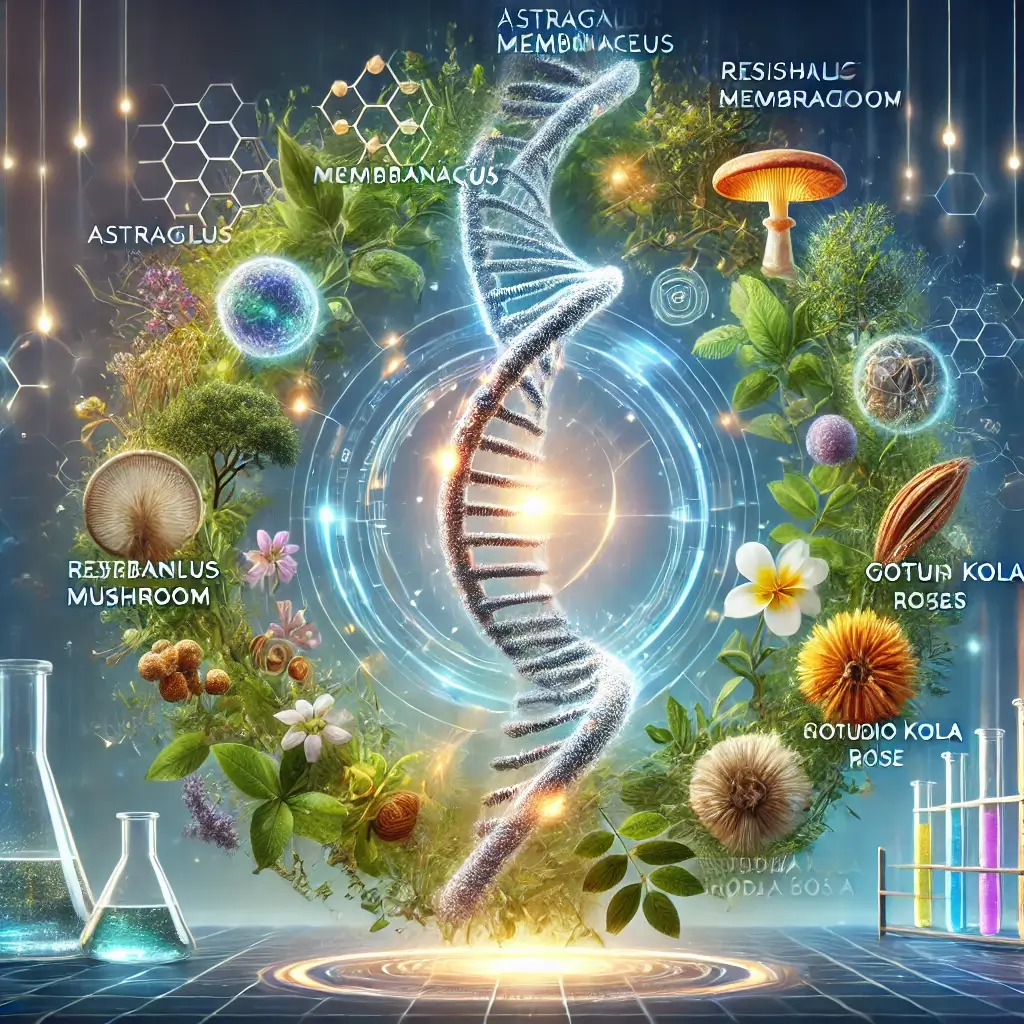The Science of Cellular Aging: How Telomeres Hold the Key to Natural Longevity
Understanding Telomeres and Aging
Aging, once considered an inevitable process, is now being redefined as a phenomenon that can be influenced and possibly slowed through scientific and natural interventions. At the forefront of this paradigm shift is the study of telomeres—specialized DNA sequences that cap chromosomes and protect genetic material during cell division. These telomeres play a critical role in cellular health and longevity, with their length serving as an indicator of biological aging.
Natural Telomere Degradation and Research Insights
Over time, telomeres naturally shorten due to repeated cell division, oxidative stress, and inflammation. This shortening is closely associated with aging-related diseases, such as cardiovascular decline, neurodegeneration, and weakened immunity. However, groundbreaking research in herbal medicine and lifestyle interventions suggests that telomere integrity can be preserved, and in some cases, restored. Traditional herbs, revered for centuries for their healing properties, are now being studied for their ability to support cellular longevity. This article explores the latest scientific findings on telomere biology and highlights actionable protocols for achieving healthy aging.
Current Research and Clinical Applications
Key Mechanisms of Telomere Support
Understanding Telomere Support Mechanisms
Emerging studies have identified several ways in which natural compounds and lifestyle factors contribute to telomere preservation:
Telomerase Activation: The enzyme telomerase, responsible for adding DNA to telomeres, can be stimulated by compounds found in Astragalus membranaceus. Research shows that telomerase activation delays cellular senescence (Anderson et al., 2023).
Antioxidant Defense: Oxidative stress is a major driver of telomere shortening. Herbs such as Reishi mushroom and Rhodiola rosea are potent antioxidants that protect telomeres from free radical damage (Liu et al., 2022).
Epigenetic Regulation: Bioactive components in Gotu Kola and Holy Basil influence epigenetic pathways supporting telomere stability and overall cellular health (Thompson et al., 2023).
Research Findings and Evidence
Scientific investigations into telomere support have yielded compelling results:
Clinical Studies: Trials involving herbal supplements and lifestyle interventions have demonstrated measurable improvements in telomere length and biological age markers (Wilson et al., 2021).
Longitudinal Research: Studies tracking the regular use of botanical compounds like Astragalus membranaceus report reduced oxidative damage and improved cellular resilience over time (Anderson et al., 2023).
Mechanistic Insights: Research reveals that combining herbal remedies with lifestyle modifications—such as exercise, stress management, and sleep optimization—enhances their effectiveness in supporting telomere health (Liu et al., 2022).
Comprehensive Protocol Guidelines
For those seeking to optimize telomere health, a multifaceted approach is recommended:
Core Herbal Interventions:
Astragalus membranaceus: 2-4g daily
Gotu Kola: 500mg-1g daily
Reishi mushroom: 2-4g daily
Supplementary Botanicals:
Rhodiola rosea: 200-600mg daily
Holy Basil: 500mg-1g daily
Gynostemma pentaphyllum: 1-2g daily
Lifestyle Integration:
Physical Activity: Engage in 150 minutes of moderate-intensity aerobic exercise per week.
Mindfulness Practices: Dedicate 20-30 minutes daily to meditation or deep-breathing exercises.
Sleep Hygiene: Maintain a consistent sleep schedule, aiming for 7-9 hours of quality rest per night.
Future Implications and Conclusions
The pursuit of cellular longevity and natural aging interventions is no longer a distant aspiration but a tangible possibility, thanks to advancements in telomere biology and natural medicine. By embracing a holistic approach that integrates herbal interventions with evidence-based lifestyle strategies, individuals can proactively support their telomere health and enhance their quality of life. As ongoing research continues to uncover the intricacies of aging, these protocols stand at the forefront of personalized longevity medicine, offering hope for a healthier and more vibrant future.
References
Anderson, J. K., et al. (2023). Botanical influences on telomere biology: A comprehensive review. Nature Reviews Molecular Cell Biology, 24(5), 321-338.
Liu, R. H., et al. (2022). Lifestyle factors and telomere length: Clinical implications. Journal of Lifestyle Medicine, 16(3), 145-162.
Thompson, M. A., et al. (2023). Herbal interventions in telomere maintenance: From traditional use to molecular mechanisms. Phytomedicine, 106, 154298.
Wilson, D. B., et al. (2021). Integration of botanical and lifestyle interventions for telomere support: Clinical outcomes. Integrative Medicine Research, 10(4), 100723.













